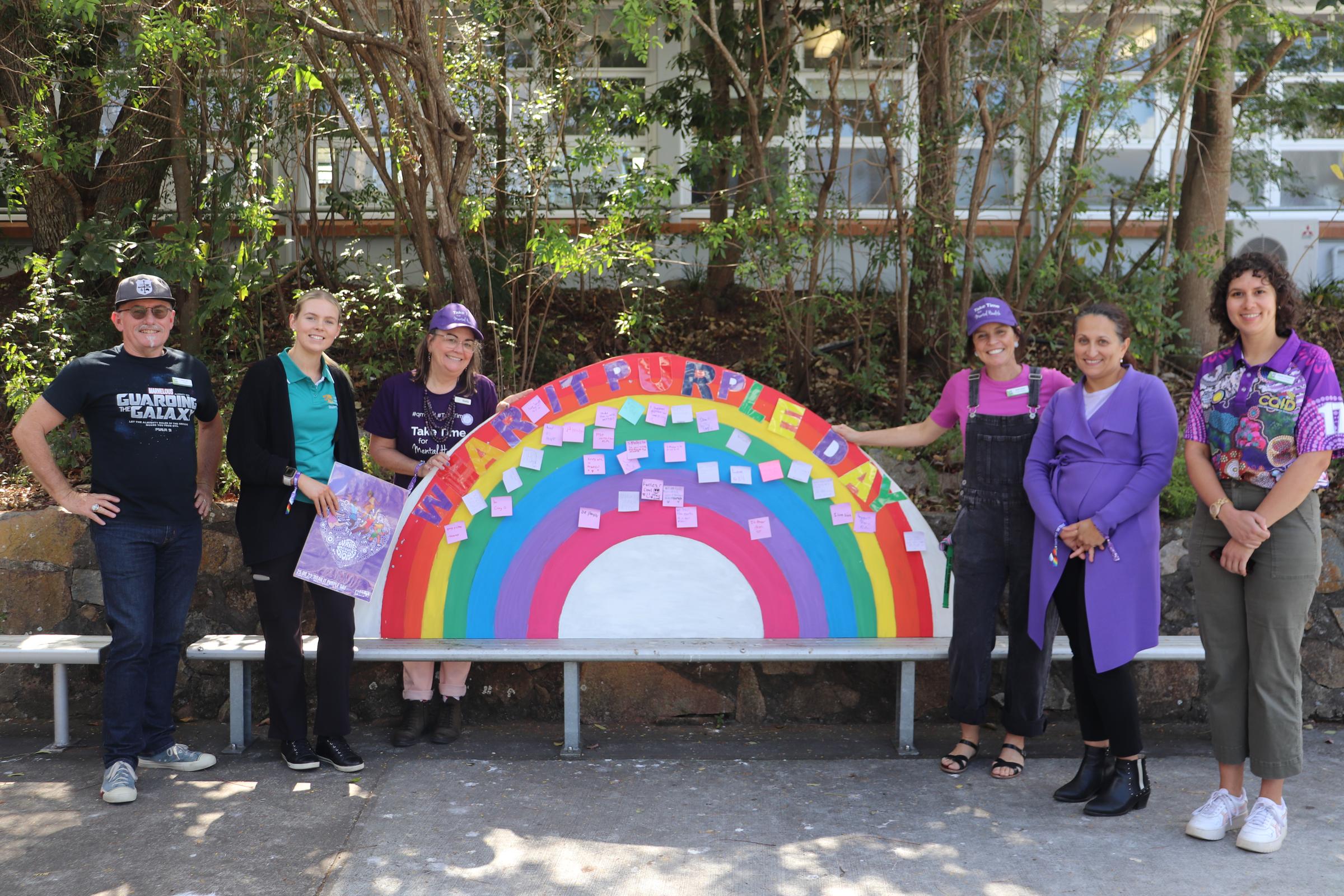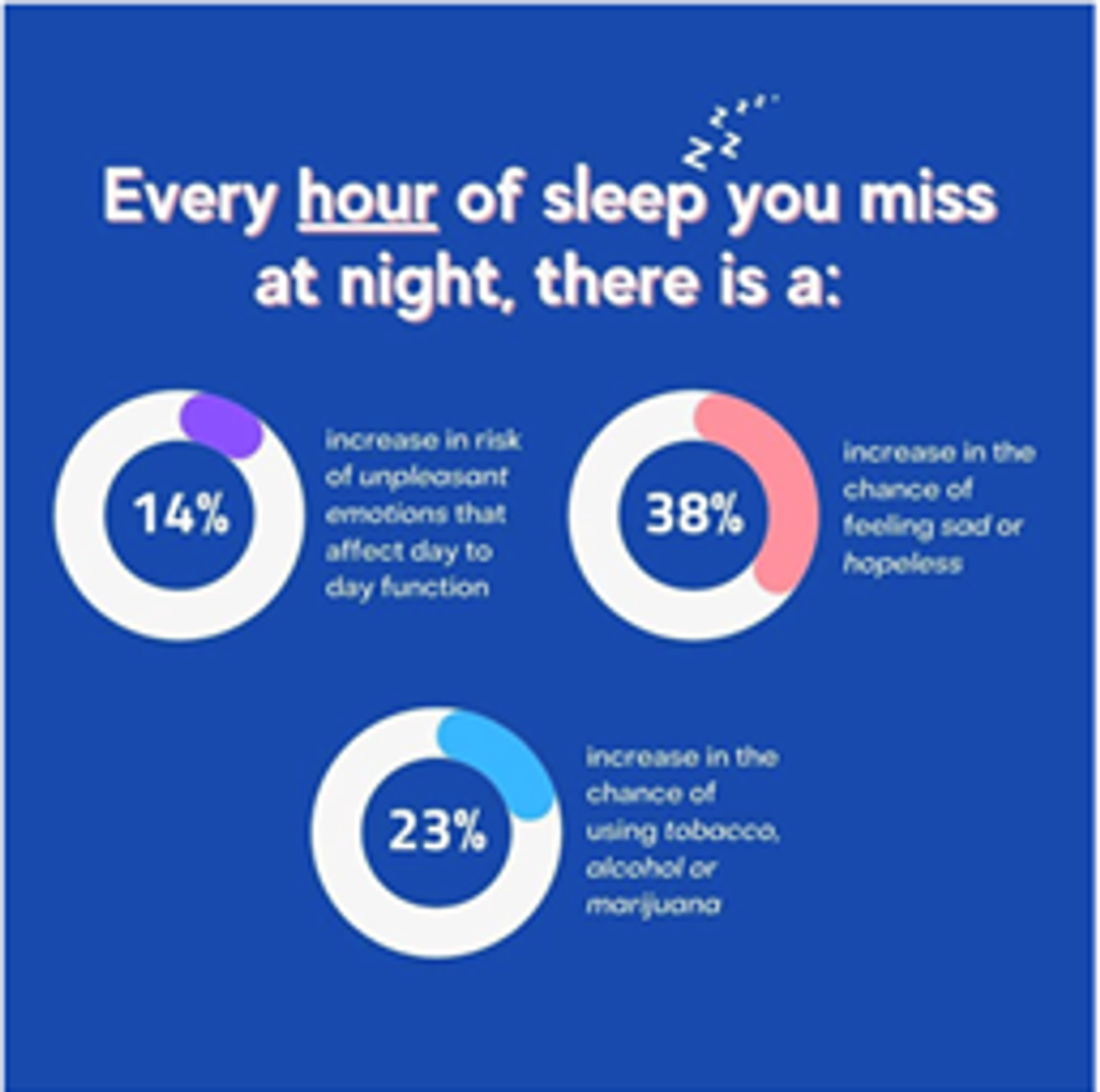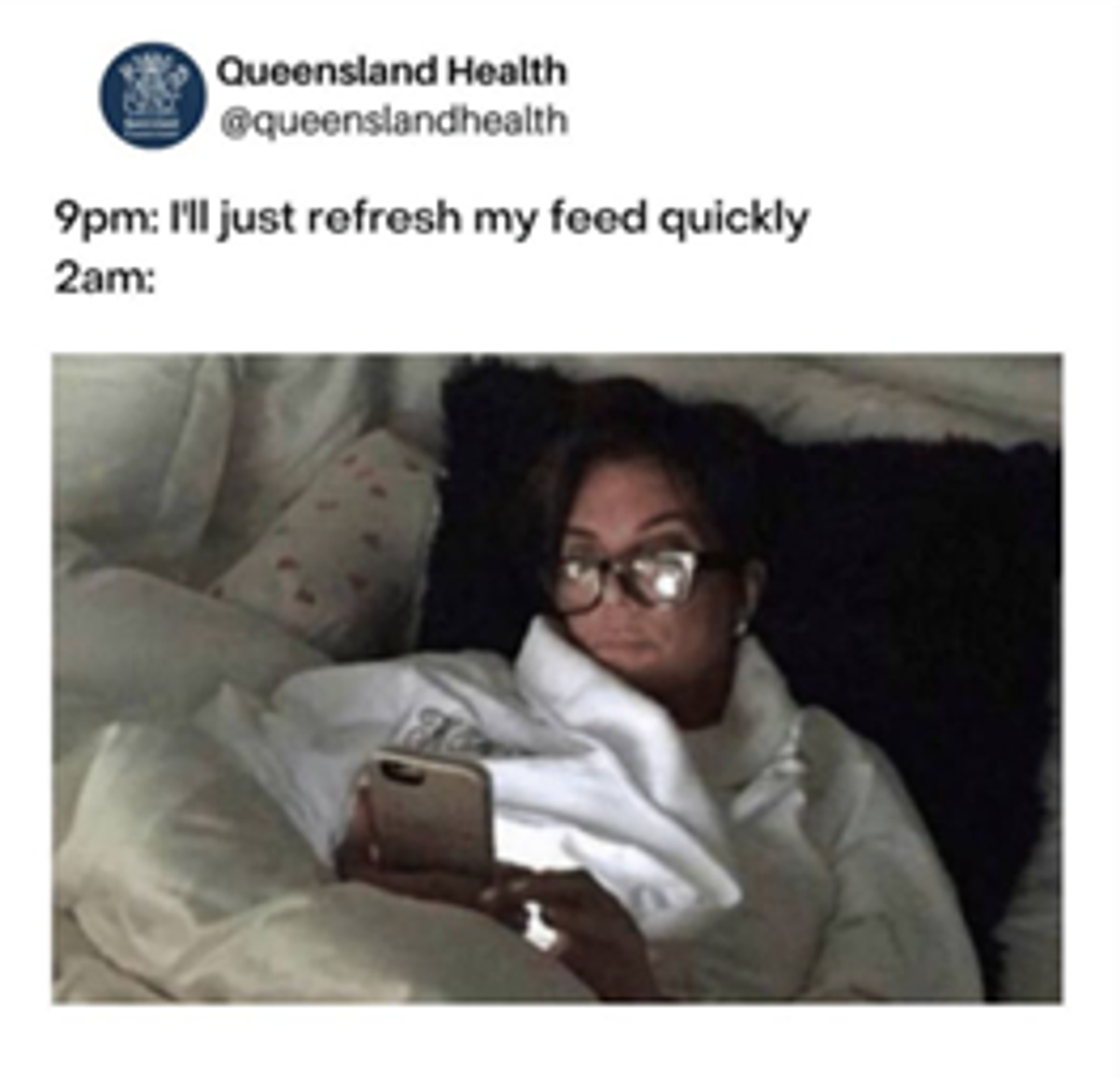Wellbeing Update

Sleep Matters
Everything starts from a good night’s sleep
Sleep is essential to being a productive, functioning human. Whether you’re aiming to get top marks in your next exam, want to have a great time with your friends on the weekend, or just don’t want to wake up ‘on the wrong side of the bed’ every morning, sleeping well at night is linked to how well and happy you feel.
When it comes to your teen years, your body needs more sleep than an adult does. For most young people, between 8-10 hours a night is necessary to feel fully rested the next day.
So how do you get a good night’s sleep?
- Get out and active during the day – being physically active during the day, especially in natural light, allows your body to produce melatonin, the hormone that controls your circadian rhythm and makes you sleepy at night time.
- The important when and where of sleep – Go to bed and wake up at the same time every day and set your optimal sleeping conditions. Make it dark and quiet and remove distractions.
- Try mindfulness to help your brain chill out – Racing thoughts, great ideas, worry about tomorrow or just an active brain? Learn some mindfulness and relaxation techniques to help quiet your mind. Smiling Mind is a fantastic app with plenty of short meditations for young people.
- Cut caffeine after 3pm – Caffeine is a stimulant which means it acts on your brain and nervous system to give you a short burst of energy. It can be found in many foods and drinks like coffee, tea, chocolate, energy drinks, soft drinks etc. Try to limit your intake after 3pm.
- Separate screen time and sleep time - The blue light from screen and devices suppresses the release of our sleep hormone, melatonin, and can make it hard to fall asleep. Try swapping your screen for a book or music an hour before bed.
Talk to Stella, your School Based Youth Health Nurse if you have health concerns or need support.
Email: nurse.thegap@health.qld.gov.au
For more info on sleep go to Health in your teens: sleep | Queensland Health


